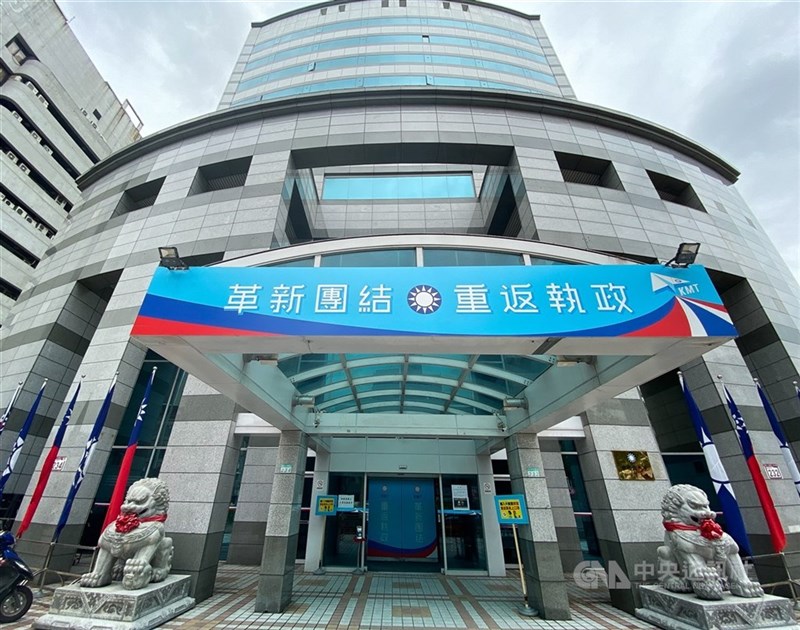
Taipei, Sept. 21 (CNA) Three candidates vying to lead Taiwan's largest opposition party outlined their views on China policy Saturday in a televised debate, all seeking improved ties with Beijing but through different approaches.
Chang Ya-chung (張亞中), a former National Taiwan University political science professor, said that if elected he would advocate reinstating the Guidelines for National Unification, which set a process for the "unification of China" with Taiwan as a part of it.
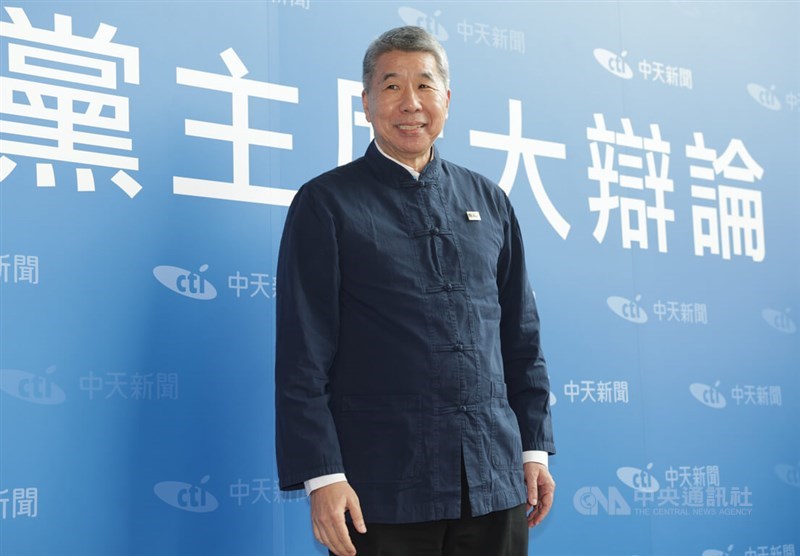
The guidelines, scrapped in 2006 by then-President Chen Shui-bian (陳水扁), would pave the way for the "peaceful union" of Taiwan and mainland China, according to Chang.
As long as the Kuomintang (KMT) "strictly adheres to its stance," which Chang said meant following the Constitution of the Republic of China (Taiwan's official name), the two sides could ink a peace memorandum, something Chang has advocated for years.
Such a memorandum, he said, would detail the cross-Taiwan Strait relationship, Taiwan's international space, and whether the "mainland" would renounce the use of force on Taiwan, and would be anchored in the Constitution, which is based on the notion that there is only "one China."
KMT lawmaker Lo Chih-chiang (羅智強) summarized his position on cross-strait relations as, "I am Taiwanese and Chinese. My China is the Republic of China."
Lo said if he were to discuss the political meaning behind the name "China," it would be the Republic of China.
The lawmaker said he would adhere to the "1992 consensus" espoused by former President Ma Yung-jeou (馬英九), which he said was a "foundation for stability and prosperity" during Ma's presidency from 2008 to 2016.
Former KMT lawmaker Cheng Li-wun (鄭麗文) also pledged to defend the ROC under the Constitution while "crushing" any calls for Taiwan independence.
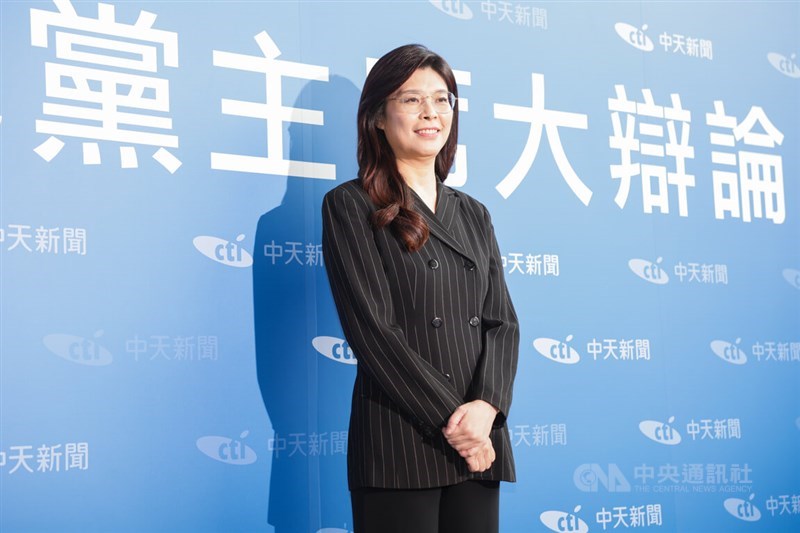
She also pledged adherence to the "consensus," hailing it as "the foundation of 100 years of cross-Taiwan strait peace."
Chang argued, however, that the "status quo" could not be maintained forever and that the "consensus" would only stall progress on creating peace between the two sides of the Taiwan Strait.
The 1992 consensus was a tacit understanding reached in 1992 between the then KMT government and the Chinese government.
It has been consistently interpreted by the KMT as a tacit acknowledgment by both sides that there is only "one China," with each side free to interpret what "China" means.
Taiwan's ruling Democratic Progressive Party (DPP) has never acknowledged the "1992 consensus," arguing that Beijing allows no room for the interpretation of "China" as the Republic of China.
Also, unlike the KMT, which insists "China" is the "Republic of China," the DPP equates acceptance of the consensus as implying agreement with China's claim over Taiwan.
The KMT's China policy will be critical to whether it can regain power in the 2028 presidential race. The party has lost three straight presidential elections since 2016 due in large part to waning public support for its traditional stance of establishing close ties with China.
That has grown especially true since 2019, when China cracked down on protests in Hong Kong.
Beijing has ratcheted up intimidation campaigns against Taiwan through military, economic and diplomatic means, and reacted angrily to any actions it sees as implying Taiwan sovereignty, something that has backfired with many Taiwanese.
Backing the 1992 consensus may not be the way to overcome doubts about the KMT's close ties with China.
According to a poll released in May 2025 by Taiwan's Mainland Affairs Council (MAC), 73.1 percent of respondents rejected the "1992 consensus" based on Beijing's "one-China principle," and 79.4 percent objected to Beijing's claim that Taiwan's future lies in "national re-unification."
Cooperation with TPP
Responding to a question on the possibility of an alliance between the KMT and the smaller Taiwan People's Party (TPP) in the 2026 local elections and 2028 presidential race to ensure victory, Lo said he was well-positioned to streamline such efforts.
He pointed to what he described as his "strong basis of mutual trust" with the TPP, formed by his frequent interactions with his TPP colleagues at the Legislature.
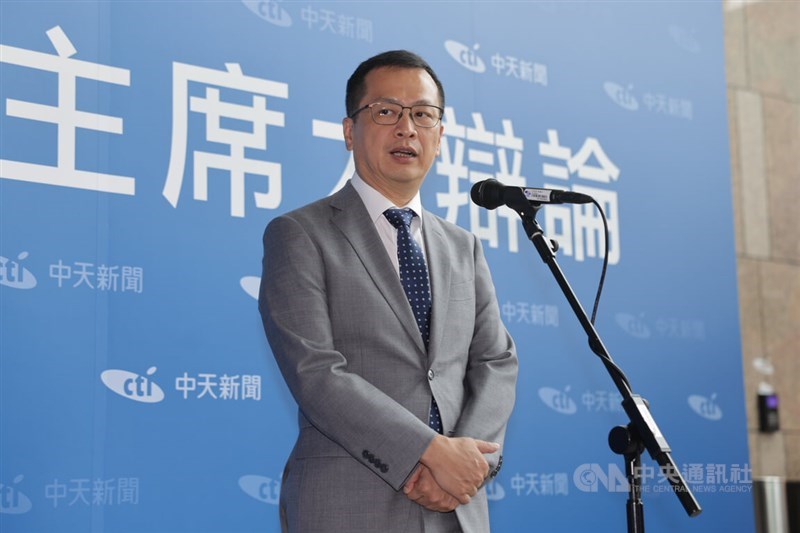
Cheng said the two parties would first have to reach an agreement on presidential election primary rules and have those rules promulgated by their respective central standing committees, adding that mutual trust and respect should underpin any collaborations.
The two opposition parties attempted to form a joint ticket for the 2024 presidential election between TPP founder Ko Wen-je (柯文哲) and New Taipei Mayor Hou Yu-ih (侯友宜).
Their efforts ultimately failed, however, partly because neither side would agree for their party's presidential candidate to instead run as a vice presidential candidate in a joint ticket and because of different political views among their supporters.
The lack of a joint ticket enabled the ruling party's candidate, current President Lai Ching-te (賴清德), to win with 40.05 percent of the votes cast.
The remaining 59.95 percent who did not vote for Lai were split between the KMT's candidate (33.49 percent) and the TPP's candidate (26.46 percent).
The KMT's debate on Saturday, the first of three planned, was hosted by television operator CtiTV.
Another candidate for the party chairperson position, former Changhua Magistrate Cho Po-yuan (卓伯源), who was not invited, protested outside the venue and slammed CTiTV for deliberately trying to sideline him.
Former Taipei Mayor Hau Lung-bin (郝龍斌), who is also competing for the chairperson position, was invited but did not attend, citing a scheduling conflict.
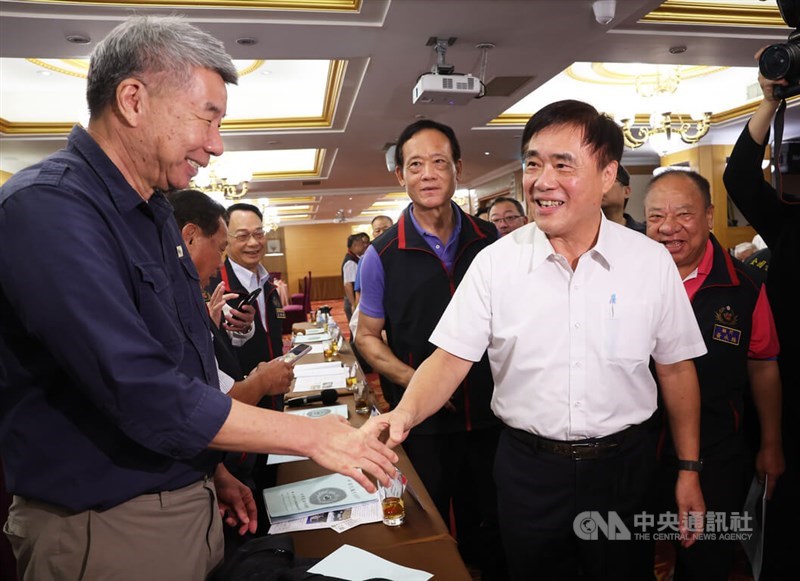
-
Culture
Director Tsou Shih-ching challenges gender norms in 'Left-Handed Girl'
02/22/2026 11:04 AM -
Society
Taiwan headline news
02/22/2026 09:43 AM -
Society
Highs of 25-30°C and sun forecast for Taiwan Sunday
02/21/2026 07:22 PM -
Science & Tech
Taiwanese experts see model for 'sovereign AI' development in India
02/21/2026 06:18 PM -
Society
Taiwan seeks to regain ASF-free status with WOAH
02/21/2026 05:29 PM